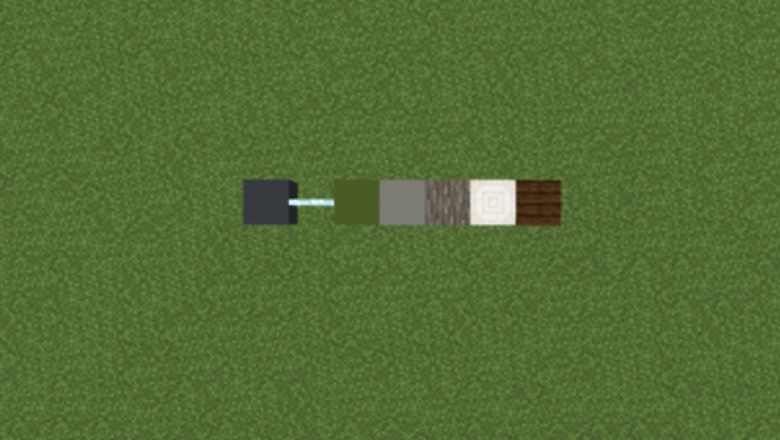
views
Setting a Foundation
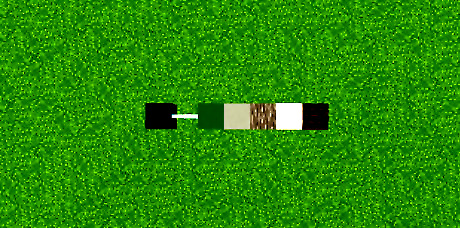
Choose a palette. A palette is the collection of blocks that you’ll use for your build. The blocks should complement each other so that your house will look good and also complement the surrounding biome. In a snowy biome, for example, you'll want to build a house out of spruce and dark oak wood to contrast with the mostly white landscape. Some palette examples are: for a rustic style house, cobblestone (and its variants), oak log, spruce wood, and glass pane; for a modern house, quartz, glass pane, concrete powder, dark oak stairs, and fence blocks; for a castle, cobblestone, stone bricks, wool (for a flag), fences, and spruce wood. Know which blocks are just bad for builds in general. Wet and dry sponges, netherrack (except for Nether related builds), most glazed terracottas, ore blocks (such as diamond blocks, gold blocks, emerald blocks), slime blocks, and more don’t look good and shouldn’t be used as a main building block.Bad_blocks.png
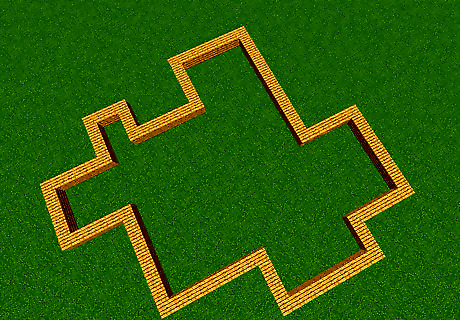
Build an interesting shape for your house. While simple cubes and rectangular prisms will do for your first house, irregularly shaped structures will be more pleasing to the eye. Instead of simply being hit by a flat wall, you’ll get time to take in the different aspects of the design. You can go randomly, adding bits that stick out from your house in every which way. The bits that stick out of the shape can be great points for building a balcony. Try taking inspiration from houses in real life. They aren’t perfect rectangles, are they? You can copy their shape if you have trouble making your own.
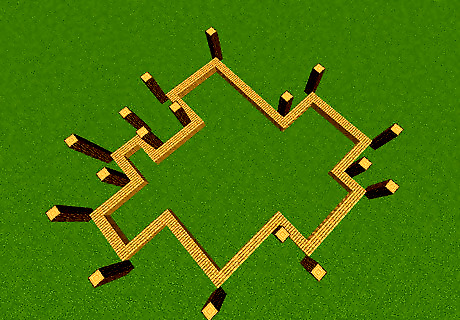
Frame the outside with a block that complements your main building material. This should be darker than the main block for your walls. Logs of different types are commonly used. Place them in the corners of your build and to break up a large section of wall that is blank. Also, frame the second story of your house if you have one.
Build up your walls. Make sure that they are tall enough so that you have space to jump. Two block high spaces feel really cramped which isn’t ideal for a house. Make the walls at least 3 blocks high (although 4 or more is even better) to open up the build. This will also give you more options for hanging lighting for your interior. You can make the bottom layer(s) of the wall a different block to resemble a foundation. On a house made of oak planks, you can have some cobblestone on the bottom. If you want a different look on the outside of your house compared to the interior, consider making your walls double layered to allow you to do so.
Adding Features
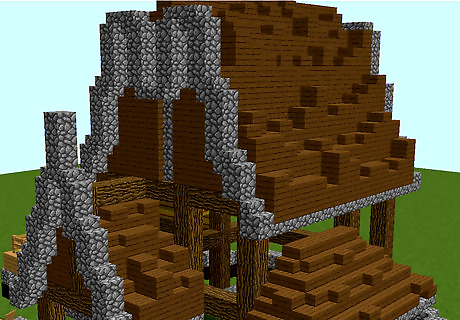
Choose a style of roof that matches your house. The block used for your roof should ideally be darker than the walls, but definitely a different shade. Normal roofs that are made only of stairs look fine, but there are ways to take your roofs to the next level. Advanced builders also frame their roofs with another complementary block on the edges of the building and the main block for the bulk of it. Be sure to make an overhang, and you can even add some slabs under the overhang to make it look better. If you want a simple good-looking design for a cabin, add a layer of cobblestone stairs on the front of the roof and double it up on the bottom. Continue the common stair design on the rest of the roof. For houses (or areas of the house) that are narrow, try creating a taller roof. Use a staircase block and a regular block for the next level up. Repeat this pattern until your roof is finished. You can use two regular blocks each time if you want an even taller roof. A flat roof can be created using slabs. You can add a little variety to it, increasing the height on some areas by adding an extra slab or using stairs. On some builds, a roof that’s a bit jagged and imperfect can fit in with the style. Mix in regular blocks and slabs to give your roof this feel.
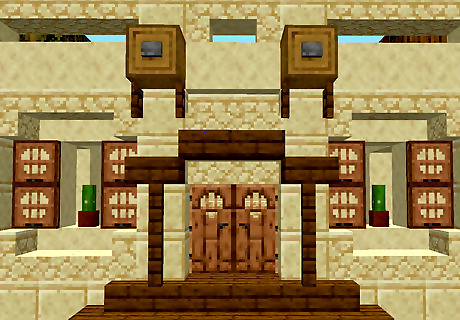
Add windows. Don't make all your windows the same shape and size. Add some variety; you can even knock out random holes and put glass panes in them if you want. Place them wherever you feel like a wall is too barren. Decorate the windows with stairs, fences, and slabs. Use different colors of stained glass where they would fit (white stained glass pane works well anywhere). You can make shutters by placing trapdoors on the sides. Banners can serve as curtains, and you can put cool designs on them, too. Use glass panes to create an extra layer of depth in your walls. Plus, they’re cheaper to use than regular glass blocks if you’re building in survival mode. Alternatively, you can set some regular glass one block further into the wall. You can even create windows in the roof. Knock out a small hole and place some slabs or stairs around the top of the window to incorporate it into the roof. Make your house look slightly ruined if you want by breaking some of the windows, placing signs on top to board them up, and using leaves to create an overgrown feel.
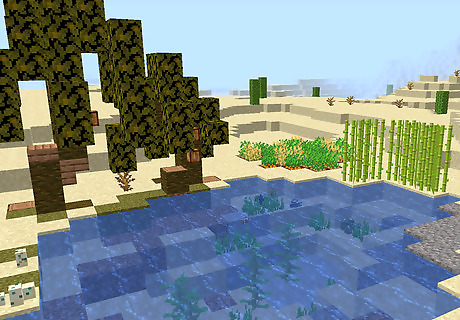
Include a farm, pond, or garden. These are ways of landscaping and integrating your house with its surroundings. Place some cobblestone walls around your farm, leaving some gaps to walk through. Try building some animal pens if you want to. Dig a hole for your pond and add sugarcane, lily pads, and ferns nearby. Make a gravel path through a garden filled with flowers, if you want. With the water mechanics in the Aquatic Update, you can make water troughs for animals by putting water inside stairs and trapdoors. Don't keep the water in your pond flowing as this looks lazy. Click around with a water bucket until you hit the right spot, and the water is flat.
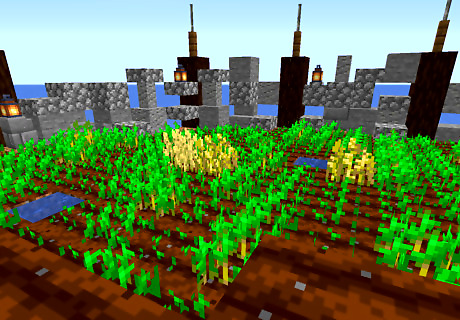
Create a simple fence around your house. Cobblestone walls work well for this purpose and look very attractive. You don’t have to surround your entire house; leave a few gaps for easy entry and exit. If you want to go for grandeur, you can build some walls out of cobblestone and/or log with slabs, stairs, and fences to decorate.
Detailing Your Build
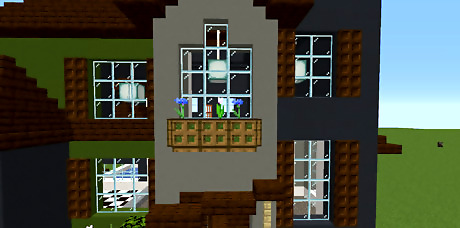
Add planters below the windows. You can create these with grass blocks and trapdoors on the sides of them. Place flowers on the blocks to give your build a splash of color. These are easy to make, but they will really make a huge difference in your house.
Decorate the outside of your walls with fences, slabs, staircases, and buttons. You can replace some of the wall blocks with staircases to make little nooks and crannies that look a little like shelves. Put these blocks in the corners of the wall segments and framing. You can create torch holders as well, by putting torches on top of a fence. Buttons will add texture to your walls. Place the wooden and stone varieties on their respective blocks. Avoid over-detailing, however. This is when you fill every available space on a wall with those decorative blocks. Over-detailing makes the walls feel cluttered, and just having a moderate amount of detail works better.
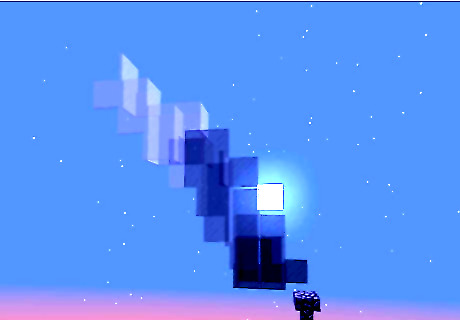
Add a chimney. If it matches your palette, cobblestone stairs, as well as a cobblestone slab at the top, make for one of the best chimney designs. If you have a fireplace, try to build your chimney above where the fireplace is in your house. You can also make a chimney out of bricks. This will be more appropriate in a modern or suburban house. For smoke, you can have cobwebs or different colors of stained glass (white, light gray, and gray) arranged in a diagonal pattern.Smoke_glass_pane.png
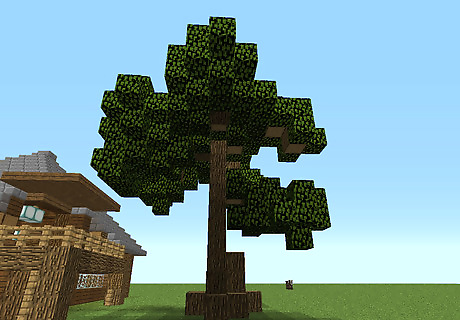
Make a custom tree. Normal Minecraft trees are very plain and in no way realistic. Start by placing a couple of logs facing to form the roots, and work your way up the trunk. Add branches going upwards diagonally and place leaves around them. You can use two different types of leaves to give the tree a variety of textures. The branches should look something like this.Custom_tree_without_leaves.png Don’t place leaves too close to the trunk. This way, your tree looks more lifelike. Another simpler way to make a tree is to create a pillar of logs for the trunk. Then, add some leaves in a shape somewhat resembling an evergreen.
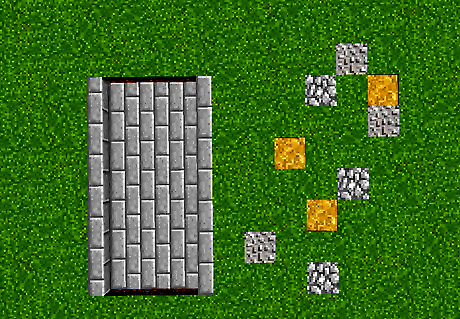
Make a path leading up to your house. You can combine gravel, cobblestone, grass blocks, and paths (made by right-clicking with a shovel on a PC) to create a worn path. If your build style is modern, try using a combination of stairs and slabs to make a more defined lane. If your worn path is going up a hill, put down some wooden slabs so that you won’t have to jump. You can make lampposts near the paths. Use cobblestone walls or fences and a light source (redstone lamps, sea lanterns, or glowstone all work and look good). Two_lampposts.png You’ll need to power the redstone lamp with a lever for it to work, and place trapdoors around the glowstone to make it look nice.
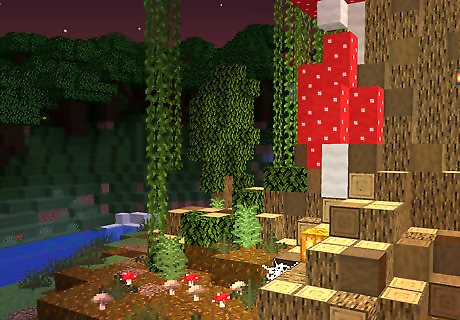
Match the landscape with the biome your house is in. This step allows your house to be integrated with nature instead of looking like it was plopped down by a giant. If the surroundings are snowy, place some snow around your house and on the roof. You can make a frozen pond with ice. For most temperate biomes like the plains and forest, you can make do with using bonemeal to get grass and flowers to grow. Also, try making a stream flowing through your property and put lily pads and ferns on its banks. Place bushes around using leaves of different types. A few clumps here and there will help your build fit in with its surroundings, and you can place some flowers around the leaves.



















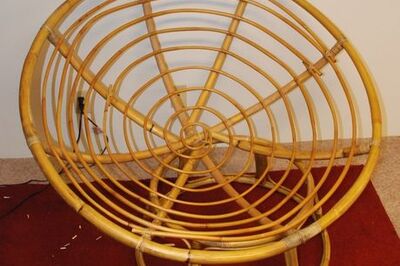
Comments
0 comment